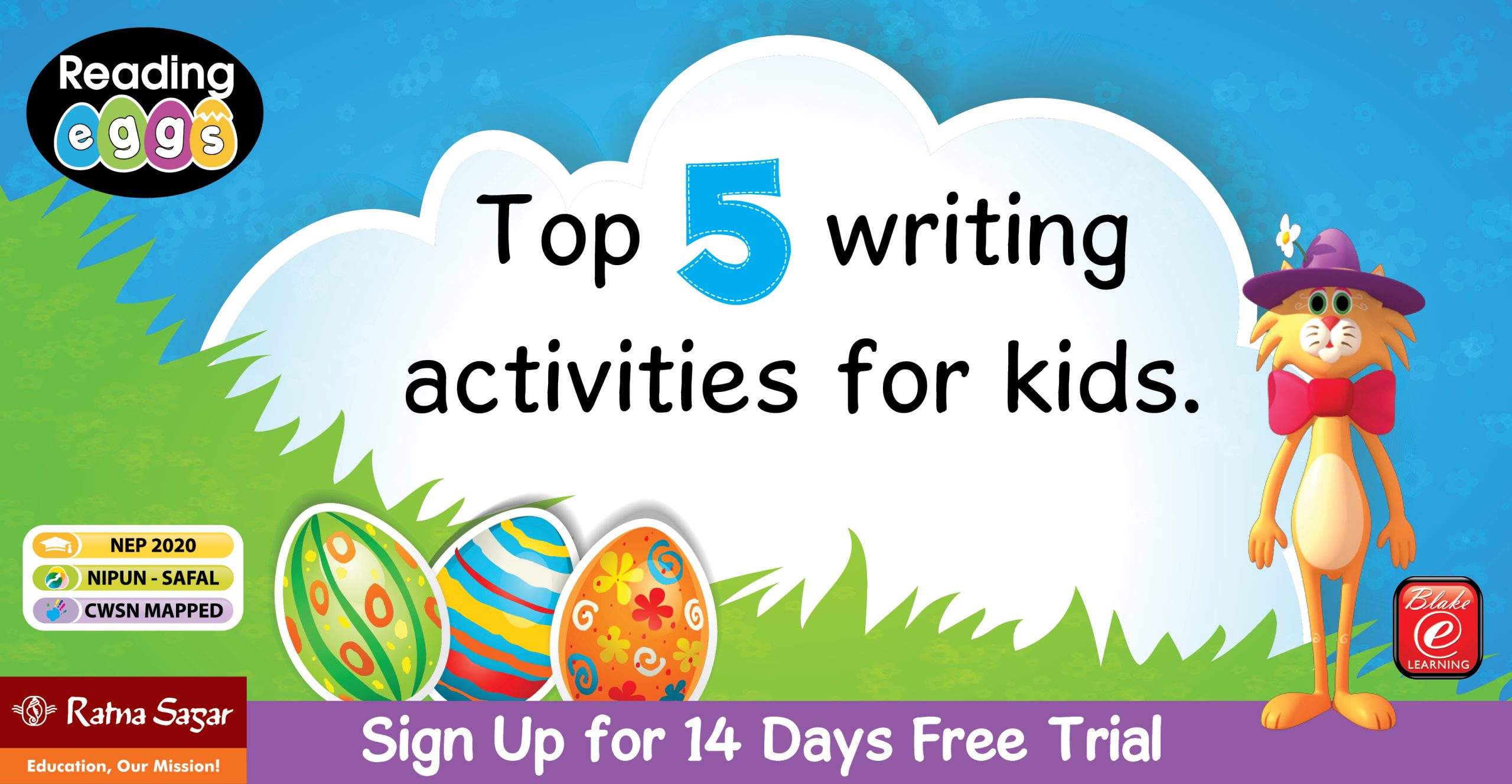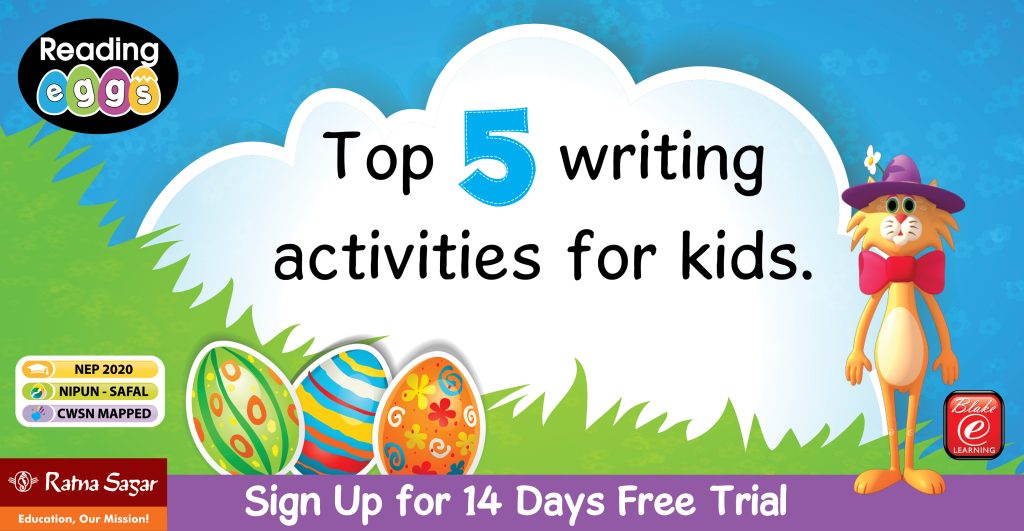Best & More Useful Everyday Writing Activities for Kids
Issac Asimov says, “Writing, to me, is simply thinking through my fingers.’’ Choosing the right words to say the unsaid is the art of writing. Writing is an important aspect of communicating your ideas. Parents and teachers spend years teaching children the proper usage of words, language, and its rules. If the question is still why writing skills are important in the era of smartphones, then the answer is- yes, your child should know to express themselves through the medium of writing to communicate effectively. Writing becomes an extension of reading and comprehension skills. It is important to hone the writing skill of the child. They begin with writing letters, words, and simple sentences. The best writing activities need not be boring or intense. They should especially suit the learning curriculum of the child as well as be enjoyable. We have selected the best writing activities along with fun games to begin their writing practice. Follow us till the end to know how these activities can make an impact on your child’s personal growth as well as on his academics.
Book 14 days FREE trial For Reading Eggs
Writing activities and forms of writing for children:
1. Picture prompts: Children react more creatively to pictures and videos. That is why there are a lot of animated videos that are used to teach children these days. The activity can be performed by showing flashcards with elements. Then, increase the number of flashcards as they get more familiar with the process. They can create imaginative places, characters, and a whole story out of it. 2. Script a new story with a different ending: This is a more creative approach to give a way to the inner voice of the person. Story writing is an activity that enhances imagination, grammar, and vocabulary. From a common story, they can come up with a different ending. Writing a different ending can be an engaging and fun activity for the children. This is a great way to introduce them to the conventions and help them in creating on their own. (Explore the Twist in the Tale series books) 3. Poetry writing: Poetry is an activity that is not restricted by age. Children who have the artistic calibre to express themselves through writing should go for writing poems. They can use rhyming words and other poetic styles to express themselves. Poetry has a spiritual feeling associated with it. For children, it might be expressing or giving exposure to their creative selves. 4. Dialogue writing: Dialogue exchange is a very generic form of writing. The children can understand the activity because it is a part of their daily life. Dialogue is the conversation between two or a group of people. Dialogue writing focuses on improving their speaking skills too. Initially, begin this activity with simple dialogues and then present complex subjects as the child progresses. The conversation can be started in this way:
- Begin with an introductory line.
- The other person will be replying to the previous dialogue.
- Keep exchanging dialogues. The ending will be your record of the conversation.
Book 14 days FREE trial For Reading Eggs
Benefits of developing writing skills in children
Enhances thinking abilities
Writing is a process since the writers have to be clear with their thoughts. Although ambiguities have been used by writers overtime to think critically and invite a variety of interpretations from readers. To develop writing skills in children, the first step is to develop a clear vision of what they are about to write. This can be established by assigning them a topic to think about and work on. This helps them in organising their thoughts structurally and coherently. The child will be able to perform better by constructing relatable sentences and paragraphs. If they are asked to write anything, the production will be in a haywire manner which will not bring any improvement in their writing skills particularly.
A life skill
Writing is not a skill that children will use only in their academics. This is a life skill that they will utilise in performing a lot of activities. While in pre-school, writing skills are connected with written homework, tests, and worksheets. As he grows older, complex writing and comprehension skills come into the picture. Writing holds a unique essence. It is a form of expression. Whether it be writing emails or maintaining a journal, written communication is useful in daily life.
Way of expression
Writing is a better form of expression. Young children show interest in reading and writing. The ability to write and express is timeless. Phenomic and comprehension form the basis of written communication. They can share their unique perspective on a broader scale. Poetry, prose, and creative writing are a way to express your true emotions and experiences. Reading texts is the powerhouse for reading prompts or introducing children to different writing forms. You can read stories and poetry from children’s literature. It is important to understand that every child has a different pace to learn and grasp skills. Writing is not something that can be perfected overnight. Asking them to write anything repeatedly might make them feel pressured to a point that they will be engaged at all. So, make sure you onboard the child properly to this ship sailing towards honing their writing skills. Explore the ‘Story Factory’ feature in the Reading Eggs Programme to help your child with simple yet effective writing activities. Sign up for a free trial of 14 days by clicking on the link below.
Book 14 days FREE trial For Reading Eggs
Read more. How to guide a child to read at home? Best Ways To Build Your Child‘s Vocabulary Online phonics classes available on Reading Eggs with Ratna Sagar

